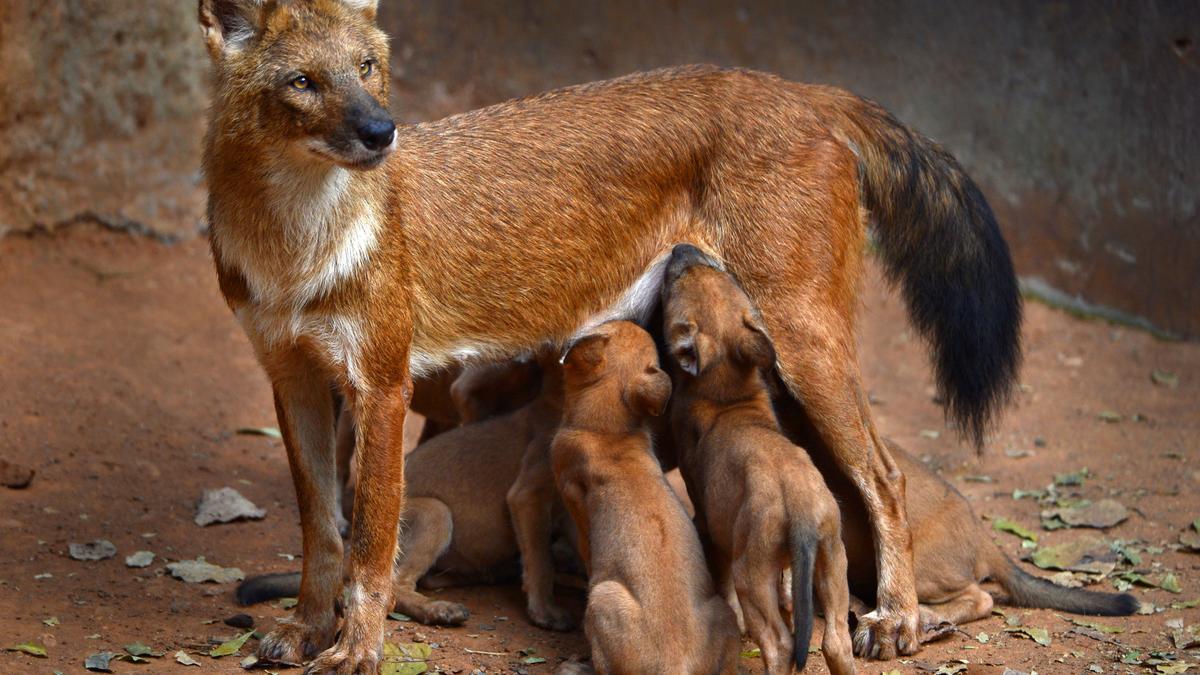
Indira Gandhi Zoological Park in Visakhapatnam triumphs in conservation breeding programme
The Hindu
Indira Gandhi Zoological Park successfully breeds endangered species, including striped hyenas and Asiatic wild dogs, for conservation.
The two hyena cubs leap energetically when they hear footsteps approaching their enclosure at the hospital of Indira Gandhi Zoological Park. The curious eyes meet a familiar face as Dr Ch Purushotham, the zoo veterinarian, comes on his morning rounds to check upon them along with the caretaker who brings the first morning meal for the cubs.
All of six months, the striped hyena cubs are ever curious, fidgety and hungry as they transition from the early stages of dependency to a more independent and exploratory phase of life. The zoo’s veterinary hospital and rescue shelter has been their home for the past five months. Here, half a dozen hospital staff attend to their demands as they grow and thrive in a nurturing environment.
“The cubs were brought to the hospital when they were a month old. We saw puncture wounds around their neck, which normally occurs when the mother keeps shifting the cubs from one place to another due to some kind of stress. Initially the cubs were on a liquid diet and gradually solids were introduced. Soon, we will be releasing them in their enclosure,” says Dr Purushotham. The cubs are testimony to successful captive breeding at the 47-year-old Indira Gandhi Zoological Park (IGZP) in Visakhapatnam.
Striped hyenas, one of the three hyena species in the world, are listed as near threatened by the International Union for Conservation of Nature (IUCN), as the global population continues to be affected due to habitat loss, human-wildlife conflict, poaching, and illegal wildlife trade.
The zoo is not only helping preserve this species but also changing public perception through education and awareness programmes.
While the zoo had in the past experienced several challenges with striped hyena captive breeding after one of its female hyenas Swathi showed maternal stress, forcing her to kills her cubs, over the past seven years IGZP has seen remarkable success after establishing a protocol of hand rearing of hyena cubs. “This is the fourth such instance of hyena cubs being successfully hand reared before being released back into the enclosure. Now we have a very good population of striped hyenas with a total of nine adults and sub-adults,” says zoo curator Nandani Salaria, who is at the helm of the conservation breeding projects.
The conservation breeding of hyenas is one of the success stories of IGZP. The zoo is also recognised by the Central Zoo Authority (CZA) for conservation breeding of Asiatic wild dog or dhole. This means it is the only zoo in India that is responsible for creating off-display conservation breeding centres (CBCs) for this species. Dholes are listed as endangered on the IUCN Red List and are considered to be at high risk of extinction.











